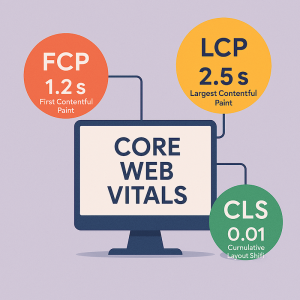Content marketing is vital for businesses to thrive in the market. Without proper and effective marketing, businesses will not be able to reach their target audience, generate leads, raise awareness about their business, and close deals and sales. In fact, a projection from Hubspot indicates that 66% of marketers expect their 2022 content marketing budget to increase more than their 2021 budget. This only reinforces the importance of such strategy.
In content marketing, the first and foremost important thing to know is your audience. Who is your market? Who do you cater to: individuals, companies, or organizations?
As early as planning and creating your business, you must establish your target audience. This will determine what kind of marketing you are going to do. In one hand, if you target consumers, you will do B2C content marketing. On the other hand, if you target other businesses, you will do B2B content marketing. Today, we will focus on the latter.
By the end of this article, you’ll have a better understanding of B2B marketing, the difference between B2B and B2C content marketing, why content marketing is important for B2B companies, common B2B content marketing assets, and top content marketing strategies you can do for your business.
What is B2B Content Marketing?
Business-to-business, more commonly known as B2B content marketing, is the art or practice of utilizing content strategies to reach your target market, expand your audiences, build and strengthen your brand affinity with your audience, and drive leads and close sales with other businesses. What makes it different from other content marketing strategies is that it caters to businesses and for businesses—not similar to the common businesses targeting consumers and individuals.

Differences Between B2B and B2C Content Marketing
Although one might think that all content marketing strategies’ end goal is to boost revenue, it’s not the be-all and end-all. Apart from the end goal, content marketing strategies for B2C and B2B greatly differ in terms of the buyer’s motivation, journey, and decision-making process, to mention a few.
Below are key differences between B2C and B2B content marketing.
1. They have different goals.
The most basic difference between B2B and B2C content marketing is this: Each content marketing strategy is made with contrasting objectives considered.
What is the goal of B2B? Its objective is to connect other businesses with your products or services. This means that your priorities will focus more on lead generation and lead nurturing.
What is the goal of B2C? Its aim is to know and understand your consumer need. Here, you will then show how your product or service fulfills or solves the problem or need. With this, you will mainly focus on increasing brand awareness and engagement to promote what you have to offer on individuals—not businesses or companies.
2. They have different buyer personas.
Who is the buyer persona of B2B? Normally, it is the employee. This employee who works for the company is the decision maker, helping the company flourish. They are responsible for building a relationship with companies that are trustworthy and can help their company grow.
Who is the buyer persona of B2C? B2C targets individual customers. The goal is to fulfill and satisfy their personal needs or wants. Their decision to purchasing services and goods is anchored to the emotional ties to the company itself, product, or service. Usually, they are focused on satisfying and solving their need.
3. They have different buyers’ journeys.
What is the buyer’s journey of B2B? Traditionally, B2B’s buyer journey is long and takes a while. Since the decision maker needs to dig deep in analyzing how the business can truly help them grow, they have a lot to consider. Considerable back-and-forth happens with B2B; which involves questions, proven data, real results, honest feedback, and established plan and projection. So, for B2B marketers, you need to work smarter and harder in building and nurturing relationships with your target market. It will take time before your seal a deal.
What is the buyer’s journey of B2C? By contrast, the B2C buyer’s journey is faster than B2B. Since you’re targeting individuals, it usually operates on impulsive, emotional, and brief decisions. Here’s what happens: The consumers recognize the need or wants, looks for businesses who offer the product or service that can fulfill their needs, and then make a purchase. Easy? Yes, easier and shorter than B2B. You just have to work on putting your brand on the top of mind of every consumer, for their needs and wants.
4. They have different tactics or strategies.
What is the strategy for B2B? It is primarily focused on three things. First, what the service or product is. Second, how it can help the business grow. Third, how much people trust you as a business. Several ways to showcase these are through B2B content marketing assets.
Common B2B Content Marketing Assets
- Blogs
- Case studies
- Customer testimonials
- Thought leadership whitepapers
- Collaborations with other trusted businesses or influencers
- Webinars
- Podcasts
- Email nurturing campaigns
What is the strategy for B2C? Three things you should focus on. First, what your brand is. Second, how it makes consumers feel. Third, why you are better than competitors. You can try these B2C content marketing strategies:
- Video content (short and catchy videos are the best!)
- Social media marketing such as TikTok, Facebook, Pinterest, and Instagram
- Customer testimonials posted on your social media and websites
Why Content Marketing is Important for B2B Companies
Content marketing is vital for B2B companies like you because of the following reasons:
- It educates your target market about your business
- You can build brand awareness more effectively
- It fosters your relationships with other businesses
- Your company improves its trustworthiness and credibility
- It helps increase sales and conversions of your business

6 Strategies to Elevate Your B2B Content Marketing Game
Content marketing is becoming increasingly important for B2B companies looking to stand out in a crowded marketplace. Nonetheless, content creation can be a challenge if you’re not sure where to start. In this blog post, we’ll look at five strategies you can use to elevate your B2B content marketing game and get results.
1. Identify your audience’s goals.
Determine your target audience’s primary goals and create content that speaks to those objectives. Doing so will ensure that your B2B content marketing efforts are more effective in helping you to reach them.
Start by identifying the specific needs of your buyers and then create content that is tailored to those needs. This could include educational blog posts and articles, case studies, infographics, webinars, and more. Keep in mind that guiding your audience toward their goals is top priority.
2. Create clear call-to-action statements.
Don’t let your B2B content end up distracting or confusing your content marketing efforts. Understand the different challenges and obstacles that your target audience is facing in their roles and tailor your content accordingly. This is a key factor in successful B2B content marketing.
The decision makers you are targeting are often overwhelmed with content and need something that speaks to their industry or offers real solutions to their problems. Crafting content that is deeply relevant, not to mention helpful and informative, to decision makers within a specific industry will help ensure that your B2B content is engaging and of value. From there, you can optimize the delivery of this content for maximum reach and ensure that it continuously engages decision makers at the times when they are most likely to convert.
3. Determine suitable content formats.
Though we already listed the best B2B content marketing assets to use, it is important to still conduct research on your target audience to understand what content formats they prefer and respond best to.
Utilize a combination of formats including written, video, and audio content to reach different types of learners or audience. Content can include blog posts, social media posts, videos, podcasts, or eBooks that are tailored toward the preferences and interests of the target customers. By creating content that speaks to the needs of the audience, B2B marketers can build trust among prospects and turn them into loyal customers.
You can also develop strategies to repurpose your content across multiple channels to maximize your reach and engage more potential customers.
Additionally, email marketing can play a major role in a successful B2B content marketing strategy. By repurposing content across email campaigns, companies are able to reach more potential customers, build brand awareness, and increase customer engagement. Through email marketing, you can easily deliver your content in a variety of formats to ensure more people have access to the information you want to share.
4. Create highly engaging content.
It’s essential to tailor the type of content to the type of customer you are trying to reach. Hence, develop content that meets your target audience’s needs and interests—with strong focus on providing helpful information and advice. B2B content marketing is all about creating quality pieces, such as blog posts and articles, white papers, infographics, podcasts and videos, that add value to your target market.
How? Use visuals, such as images and videos, to make your content more engaging and appealing to readers. They can range from photographs to infographics to videos that help break up blocks of text, making the content more interesting and engaging. By incorporating visuals into your content strategy, it can help bring attention to the content, aid in comprehension, and create a memorable experience for readers.
5. Monitor performance and regularly optimize.
Monitor key metrics such as website traffic, engagement, and conversion rates to determine the effectiveness of your content strategy. These search engine metrics are essential for B2B content marketing, providing insights into the success and reach of your website and content.
Understanding search engine performance helps businesses evaluate whether they are reaching their target audience and optimizing search engine visibility. By evaluating search engine performance, B2B businesses can adjust their content strategies to ensure they are achieving maximum engagement.
Likewise, constantly refine your content to ensure it’s always up-to-date and relevant for your target audience. As a B2B content marketer, it’s important to keep track of industry trends and the needs and wants of your target audience, so that your content is not only accurate but also meets the standards for quality.
An effective strategy for staying on top of this is to regularly audit your existing content and explore ways to optimize and update it as necessary. On top of ensuring accuracy and relevance, you should also be looking for opportunities to repurpose old content into new formats, such as turning an article into a video or creating an infographic based on existing data. Doing this will help ensure that your B2B content marketing strategy remains fresh and engaging.
6. Implement a variety of promotion tactics.
Remember: No two audiences are the same. That’s why it’s important that B2B content marketing should involve a mix of tactics such as email campaigns, social media, and paid search ads.
One strategy that is becoming popular is influencer marketing. By partnering with a respected and appropriate influencer, you can amplify your piece of content to a wider audience. This works especially well in the B2B world, as people are more likely to trust the endorsement of someone they look up to. Plus, influencer marketing has proven to be one of the most effective and cost-efficient ways to reach people via content marketing.
Another promotion tactic is through newsletters. Many B2B companies nowadays create and offer epic newsletters to help customers stay informed about company updates and new products.

Leverage B2B Content Marketing with BlueFly Studios
When it comes to B2B content marketing, there is no one-size-fits-all solution. What works for one company may not be the best fit for another. The most important thing to keep in mind is that successful content is strategic content. Keep focused on creating content that resonates with your audience and business goals, and you’ll have no trouble taking your B2B content marketing game to the next level.
Need help with your B2B content marketing strategy? Let BlueFly Studios help you. Inquire now by filling out our form. We’ll be happy to hear from you.





